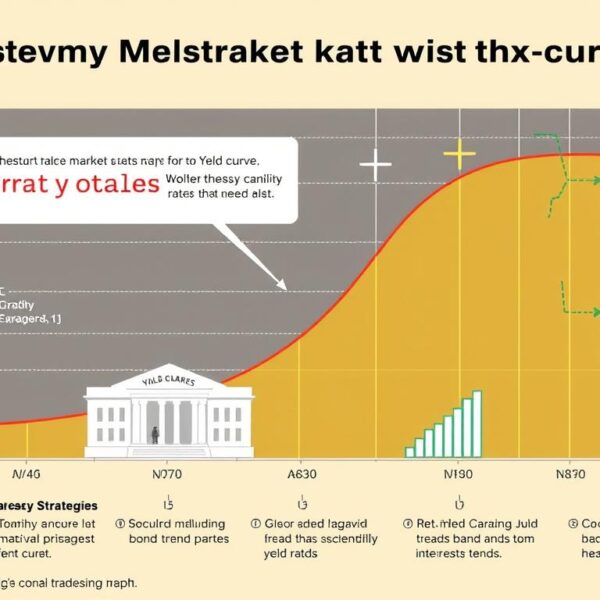The 2024 U.S. presidential election is heating up, and everyone is watching CNN for updates. Over 78 million people have voted early in 47 states and Washington D.C. This is a huge number, but it’s less than the 70% seen in 2016.
Political experts are looking at how people are voting differently this year. More Republicans are voting early than in 2020. Also, Vice President Kamala Harris is leading in early voting, CNN polls show.
Key Takeaways
- Over 78 million ballots have been cast in 47 states and the District of Columbia, a record-breaking figure.
- Pre-election voting is expected to make up around 50% of all ballots, down from 70% in 2016.
- Registered Republicans have increased their share of pre-election voters in several battleground states.
- Vice President Kamala Harris is leading among early voters, according to recent CNN polling.
- The 2024 election is shaping up to be a closely contested race with significant pre-election voting activity.
Breaking Down Pre-Election Voting Trends
As the 2024 election gets closer, everyone is watching the voting trends. The numbers are lower than in 2020, but some states are seeing more people vote early in person.
Record-Breaking Early Voting Numbers
In North Carolina and Georgia, early voting numbers are breaking records. More people are choosing to vote early instead of on Election Day. Meanwhile, mail-in voting is down from 2020.
Changes from 2020 Election Patterns
In 27 states, the way people vote early is changing. Democrats are voting less, down from 42% in 2020 to 37% now. Republicans, on the other hand, are voting more, up from 30% to 35%.
State-by-State Early Voting Analysis
| State | Democratic Share | Republican Share | Gender Gap |
|---|---|---|---|
| Arizona | 38% | 41% | Women 52%, Men 47% |
| Pennsylvania | 56% | 33% | Women 56%, Men 43% |
| Georgia | N/A | N/A | Women 56%, Men 43% |
| Nevada | N/A | N/A | Women 51%, Men 47% |
Looking at each state gives us a better understanding of the political landscape. It shows how voting patterns are changing across the country.
Latest CNN Election Updates: Key Battleground States
The latest from CNN gives us a close look at the battleground states. These states, like Pennsylvania, Wisconsin, and Arizona, could decide the election. The data shows a tight race, making every vote count.
In Pennsylvania, Trump leads by over 110,000 votes. With almost 60% of votes counted, this shows how close the race is. It highlights the state’s history of close elections.
Wisconsin is also a key state, with Trump leading by just one point. With about 50% of votes in, the race is very tight. This mirrors the deep political divisions in the country.
Election officials are working hard to count votes accurately and securely. In Arizona’s Maricopa County, they’ve counted the first million votes. But, they warn it may take up to 13 days to finish counting all votes.
| Battleground State | Current Vote Count | Vote Leader |
|---|---|---|
| Pennsylvania | 60% counted | Trump +110,000 |
| Wisconsin | 50% counted | Trump +1 point |
| Arizona | 50% counted | Maricopa County reports 1 million votes |
The nation waits with bated breath for the final results. The coverage of these states will shape the election’s story. Everyone will watch the vote counts and trends in these crucial areas.
“The people of this country are the heart and soul of our nation. Their voices deserve to be heard and their votes deserve to be counted.” – Kamala Harris
Shifting Demographics in Voter Turnout
As the 2022 midterm elections near, we see big changes in who votes. The latest numbers show big shifts in gender, age, and where people vote. These changes give us a peek into the changing political scene.
Gender Gap Analysis in Swing States
In key swing states, a big gender gap is showing up in voting. Early voting data shows 1.8 million more women than men have voted in seven competitive states. In Georgia, women make up 56% of early voters, showing a big gap.
Age Distribution of Early Voters
Young voters (ages 18-29) usually don’t vote as much. But in 2022, there’s a small shift towards Republican support among them. Now, about half support the GOP, down from 60% for Democrats in 2020.
Geographic Voting Patterns
Voting patterns by location also show interesting changes. In Michigan, Wisconsin, and Pennsylvania, non-college-educated White voters have decreased since 2020. Meanwhile, college-educated Whites and voters of color have grown. This could change election results in these key states.
| Voter Demographic | 2014 | 2018 | 2022 |
|---|---|---|---|
| Whites without a college degree | 43% | 39.3% | 38.3% |
| Whites with at least a four-year college degree | 33.3% | 33.3% | 36% |
| Non-White voters | 30.5% | 43% | 35% |
These changes in voter demographics will greatly affect the 2022 midterm elections. Political parties and candidates will need to adjust their plans to win over the changing voters.
Republican vs. Democratic Early Voting Comparison
The 2024 election cycle is bringing new insights into early voting trends. Political analysts are keenly observing these changes. They are looking at how party affiliations are shaping early voting.
In states like Arizona, Nevada, North Carolina, and Pennsylvania, Republicans are gaining ground. In Arizona, Republicans now make up 41% of early voters, up 4 points from 2020. Nevada saw a 1-point increase to 37% for Republicans. North Carolina’s Republicans rose by 2 points to 33%, and Pennsylvania’s by 10 points to 33%.
Meanwhile, Democrats are losing ground in these states. The biggest drop was in Pennsylvania, where Democrats now make up 56%, down 10 points.
These changes hint at a shift in the political landscape. Republicans are making strides in areas once dominated by Democrats. Yet, it’s crucial to remember that early voting data doesn’t tell the whole story. The ability to track who has voted in real-time allows campaigns to focus resources on contacting voters who have not yet cast their ballots.
“The data is mostly based on public voter files, ensuring transparency in the election administration process.”
As election day draws near, analysts will keep a close eye on these trends. The party affiliation, early voting statistics, and political analysis of the data will be key. They will help understand voter preferences and their impact on the final results.
Critical Swing State Analysis: Pennsylvania and Michigan
The 2024 election is heating up, focusing on Pennsylvania and Michigan. These states are key in the presidential race. The latest numbers show a close contest.
Urban vs. Rural Voting Patterns
In Pennsylvania, the city vs. countryside voting is clear. Trump leads by over 110,000 votes, but Philadelphia and nearby areas might change things. These areas are strong for Democrats, which could narrow the gap.
In Michigan, the difference between city and countryside is also big. The state’s top official says voting went smoothly, despite Trump’s claims. A big turnout in Detroit, a Democratic stronghold, could be key for Harris.
Mail-in Ballot Statistics
- Across these swing states, an average of 15% of likely voters remain undecided.
- In Pennsylvania, Harris leads among young voters, while Trump does well with college-educated Whites.
- In Georgia, Harris gets 85% of Black voters’ support.
- Democratic voters in Michigan and Wisconsin are more motivated to vote.
| State | Candidate | Vote Share |
|---|---|---|
| Pennsylvania | Trump | 47% |
| Pennsylvania | Harris | 47% |
| Michigan | Harris | 48% |
| Michigan | Trump | 43% |
As votes are counted in these crucial states, the swing state analysis, electoral college projections, and mail-in voting data will be key. They will help decide the 2024 presidential election.
Election Security Measures and Monitoring
Ensuring the integrity of our democratic process is crucial. Election officials across the country have put in place strong measures. These are to protect the voting experience and prevent fraud or irregularities.
Having impartial poll monitors at polling places is key. These observers ensure voting procedures are followed correctly. They make sure every eligible voter can cast their ballot without interference. In states like Michigan and Pennsylvania, officials have denied claims of heavy law enforcement presence. They emphasize their commitment to fair and transparent elections.
- Election officials have deployed comprehensive security protocols to protect the sanctity of the vote.
- Nonpartisan poll monitors are stationed at polling locations to uphold the integrity of the electoral process.
- Authorities have swiftly debunked any false allegations of voter fraud or voting irregularities.
The 2022 midterm elections show the resilience and dedication of election officials. They work hard to safeguard the right to vote. Despite political tensions, they remain committed to election security, voter fraud prevention, and fair polling place monitoring.
| Security Measure | Description |
|---|---|
| Bipartisan Poll Monitoring | Nonpartisan observers from both major parties are stationed at polling locations to ensure fair and transparent voting processes. |
| Robust Cybersecurity Protocols | Advanced security measures, including encryption and multi-factor authentication, are in place to protect electronic voting systems from potential cyber threats. |
| Rigorous Auditing Procedures | Election officials conduct regular audits of voter rolls, ballot counts, and other critical election data to verify the accuracy of results. |
| Voter ID Requirements | Voters are required to present valid identification, such as a driver’s license or state-issued ID, to cast their ballots, helping to prevent voter fraud. |
Through these election security measures and polling place monitoring, officials ensure the 2022 midterm elections are fair and transparent. They uphold the democratic principles of voter fraud prevention.
Impact of Mail-in Voting on Election Results
The 2022 midterm elections are underway, and mail-in voting is a big deal. Mail-in ballots are down from 2020, but some states make it harder to vote by mail. This affects how votes are counted and when results come in.
Processing Times and Counting Procedures
In Maricopa County, Arizona, it might take up to 13 days to count all ballots. This is because of the many mail-in ballots and the need to check each one carefully. Other key states face similar delays, showing how mail-in voting changes election timelines.
State-Specific Mail-in Voting Rules
- Nevada has a website for voters to fix their mail-in ballots by November 12.
- In Lancaster County, Pennsylvania, over 50% of 64,000 mail-in ballots were scanned by mid-afternoon on Election Day.
- Milwaukee, Wisconsin, had to recount 30,000 absentee ballots because of a machine error.
Each state has its own rules for mail-in ballots, making counting complex. This can delay when we know the election results.
| State | Mail-in Voting Challenges | Impact on Results Timeline |
|---|---|---|
| Arizona | Slower vote tabulation in Maricopa County due to double-page ballots | Up to 13 days to tabulate all ballots, including mail-ins |
| Pennsylvania | Lancaster County scanned over 50% of 64,000 mail-in ballots by mid-afternoon | Increased processing time for mail-in ballots |
| Wisconsin | Milwaukee had to rerun 30,000 absentee ballots due to tabulating machine error | Disruption in the vote counting process |
As the 2022 midterm elections go on, watching how mail-in voting affects results is key. The time it takes to count votes and each state’s rules will shape when we get final results.
Electoral College Projections and Key States
The 2022 midterm elections are here, and everyone is watching the electoral college projections and swing states. CNN’s team of experts is working hard to give us the latest on the presidential race projections. They use vote data and statistics to make sure their insights are accurate and timely.
They look at many things like vote types and where votes come from. CNN wants to be 99.7% sure about their predictions. They check and double-check the facts before sharing their thoughts on important races.
Some states like Pennsylvania, Arizona, and Nevada might take longer to count votes. But CNN is committed to giving us all the updates we need. This year, fewer people are voting by mail, which could speed up counting in places like Georgia and North Carolina.
Counting votes in Pennsylvania and reporting early votes in Georgia and North Carolina are key. They help us understand who’s voting and where. The differences between urban and rural areas and how many people are voting will also be important.
As we wait for the results, CNN’s electoral college projections and swing states analysis are essential. They promise to provide detailed and accurate information. This will help us understand the big picture of American politics.
Real-time Vote Counting Updates
As the 2024 U.S. presidential election unfolds, voters across the country are eagerly awaiting the latest live election results. The vote counting process is underway, and several key battleground states are closely watched for their potential impact on the final outcome.
County-Level Result Analysis
In Wisconsin, a state that has historically been decided by razor-thin margins, election officials expect a long counting process. Previous elections in the state have been won by less than a single percentage point, underscoring the importance of every vote.
Meanwhile, in Arizona’s Maricopa County, the state’s largest county, officials have reported the first million votes, about half of the expected total. This early milestone provides a glimpse into the state’s voting patterns, though a complete picture will emerge as more results are tallied.
Pennsylvania’s Philadelphia and surrounding counties are also slower to report their votes, a pattern observed in the 2020 election as well. The state’s mail-in ballot processing and counting procedures continue to be a focal point for election watchers.
Reporting Timeline Expectations
- Wisconsin’s close races may take longer to be called, as officials expect a prolonged counting process.
- Arizona’s Maricopa County is making steady progress, but final results may not be known for several days.
- Pennsylvania’s urban centers are reporting more slowly, potentially delaying the state’s final tally.
While the vote counting process may take time in some states, election officials are committed to ensuring the accuracy and integrity of the results. Voters are encouraged to stay informed and patient as the democratic process unfolds.
“The will of the people is the foundation of the authority of government, and the determination of that will is the first duty of those charged with the conduct of public affairs.” – Abraham Lincoln
Voter Turnout Compared to Previous Elections
The 2022 midterm elections are sparking a lot of talk about voter turnout. Early voting numbers are lower than in 2020, but still around 50% of all votes are expected. This change shows how voting habits are evolving.
Michigan is a state to keep an eye on, with a possible record-breaking turnout. The Detroit area’s growing population is boosting voter interest. Colorado, too, is seeing changes with a new electoral vote due to Denver’s population growth.
| Election Year | Early Voting Share | Total Voter Turnout |
|---|---|---|
| 2020 | 70% | 155 million |
| 2022 | 50% | Projected 120 million |
The table shows a big drop in early voting and a lower total turnout for 2022 compared to 2020. This change in voting behavior will impact election results and future politics.
“The midterm elections are often seen as a referendum on the sitting president, and the turnout numbers will be closely watched as an indicator of the public’s sentiment towards the current administration.”
The 2022 midterm elections are being closely watched. Voter participation will be key in shaping the election’s outcome and the country’s future politics.
State Election Official Responses and Updates
As the 2022 midterm elections happened, state election officials worked to calm concerns and share updates. Michigan Secretary of State Jocelyn Benson said the election in Detroit was “very successful” with few problems. In Philadelphia, election officials also denied President Trump’s cheating claims, showing the process’s integrity.
Even with some issues, like bomb threats in Georgia and Pennsylvania, many states saw record voter turnout. Georgia saw over 900,000 voters on Election Day, aiming for 1.2 million by day’s end. Philadelphia’s turnout hit 60% by mid-afternoon, with hopes to reach 70-80% by polls closing.
Wisconsin’s role in presidential elections is key, with its votes often deciding the outcome. To help voters, courts in Georgia and Pennsylvania extended voting hours at some places. This shows the effort to keep democracy alive.
Notable figures like Elon Musk were with former President Donald Trump in Florida on election night. This move sparked many discussions. In Guam, Vice President Kamala Harris won a U.S. presidential election straw poll, showing a shift in voter preferences.
| State | Key Voting Updates |
|---|---|
| Georgia | Saw 900,000 voters statewide on Election Day, with a projection of 1.2 million voters by the end of the day. |
| Pennsylvania | Philadelphia’s voter turnout reached 60% by mid-afternoon, with expectations to surpass 70-80% by the close of polls. |
| Wisconsin | Has historically swung between Republicans and Democrats in past presidential elections, with close margins in several races. |
| Arizona | Maricopa County faced a slower-than-expected vote tabulation due to ballots being two pages, doubling the processing time. |
| Nevada | Secretary of State Francisco Aguilar reported a trend of younger voters needing to cure their ballots, with a deadline of November 12. |
Most voters trusted the election’s integrity, a Pew Research Center survey found. State officials stressed the elections’ security and warned against misinformation and conspiracy theories.
Campaign Strategies in Final Hours
With the midterm elections just around the corner, both the Democratic and Republican campaigns are working hard. They aim to get voters to the polls and share their key messages. The final days are crucial, as the race is tight in key states.
Last-Minute Voter Outreach Efforts
The Trump campaign is now focusing on encouraging Republicans to vote early. This is a change from their 2020 strategy. The Biden campaign, on the other hand, is targeting specific groups. For example, they’re trying to get Black male voters in West Philadelphia excited.
Both sides are using different tactics to reach voters. These include:
- Using celebrity endorsements and community leaders for outreach
- Hosting big campaign events to showcase their candidates
- Organizing precinct by precinct and using data to find key voters
- Creating persuasive ads and messages to sway undecided voters
Key Campaign Messages
The final push is all about competing messages. The Trump campaign is using strong anti-immigrant rhetoric. The Biden campaign is focusing on the candidate’s story, economic plans, and the current administration’s shortcomings.
Each campaign is also tailoring their messages for different groups. The Biden campaign is trying to win over non-college-educated white women and boost enthusiasm among Black women and Latinos. The race is close, and the outcome could depend on the last week’s efforts and how well each campaign reaches their voters.
| Metric | Biden Campaign | Trump Campaign |
|---|---|---|
| Polling Average | 48% | 47% |
| Early Voting | Focused on mobilizing base | Shifted to encourage mail-in and early voting |
| Campaign Tactics | Precinct-level organizing, data-driven outreach, celebrity endorsements | Anti-immigrant messaging, rural and male voter targeting |
| Key Messages | Candidate biography, economic plans, Trump unfitness | Searing anti-immigrant fear, cultural grievances |
As the campaigns near the end, the race is very competitive. The outcome could depend on how well each side mobilizes their voters and convinces undecideds.
International Reaction to Election Progress
The 2024 U.S. presidential election has caught the world’s attention. World leaders are excited to work with the next U.S. president. They see the importance of a strong global partnership.
Australian Prime Minister Anthony Albanese said his government wants to work with the U.S. president. He talked about the strong bond between Australia and the U.S. This shows the global community values stable global relations and international perspectives.
The global response to the election is mixed. People are both excited and cautious. Foreign observers are watching the vote closely. They want to know how it will affect their countries’ foreign relations.
| Network | Election Night Coverage Start Time (PT/ET) |
|---|---|
| ABC News | 4 p.m. / 7 p.m. |
| CBS News | 4 p.m. / 7 p.m. |
| CNN | 1 p.m. / 4 p.m. |
| Fox News | 3 p.m. / 6 p.m. |
| MSNBC | 3 p.m. / 6 p.m. |
| NBC News | 2 p.m. / 5 p.m. |
| NewsNation | 3 p.m. / 6 p.m. |
| PBS | 12 p.m. / 3 p.m. |
The world is watching the election closely. The international community is eager to see how the U.S. will handle future challenges. The global impact of the U.S. presidency is clear, and everyone is waiting for the results.
Election Night Watch Parties and Events
Many Americans are excited to join election night gatherings and political events as they wait for election results. These events range from community watch parties to celebrations for specific political groups. They show how voter engagement is alive and vibrant across the country.
In Detroit, the King Solomon Baptist Church is hosting a “pray and watch” party. Rotating pastors will lead prayers during commercial breaks. Meanwhile, in Asheville, North Carolina, a GOP watch party is bringing together Trump supporters to watch the results. These events highlight the variety of election night gatherings happening everywhere.
These political events are more than just places to watch election results. They are a sign of the strength of American democracy. As people wait for the final results, these gatherings are a time for both joy and reflection. They show the importance of voter engagement in shaping our future.
| Network | Election Night Coverage Start Time |
|---|---|
| ABC News Live | 4 p.m. PT/7 p.m. ET |
| CNN | 1 p.m. PT/4 p.m. ET |
| Fox News | 3 p.m. PT/6 p.m. ET |
| MSNBC | 3 p.m. PT/6 p.m. ET |
| NBC | 2 p.m. PT/5 p.m. ET |
| NewsNation | 3 p.m. PT/6 p.m. ET to 10 p.m. PT/1 a.m. ET |
| PBS | 12 p.m. PT/3 p.m. ET |
| Prime Video | 2 p.m. PT/5 p.m. ET |
These election night gatherings and political events show Americans’ deep commitment to democracy. As we wait for the final results, these places are where people come together. They reflect, participate, and shape the future of our country.
“These election night gatherings are a powerful reminder of the vitality of our democracy and the deep-rooted desire of the American people to have a voice in their government.”
As we face this important election, these election night gatherings and political events show the spirit of voter engagement. This spirit is what keeps American democracy alive and strong.
Media Coverage Analysis and Trends
The media’s role in the election is being closely watched. News outlets are competing for viewers, affecting the voting process. This has sparked a lot of interest.
Social Media Impact on Election Updates
Social media has changed how we get election news. Sites like Twitter and Facebook are filled with political talks. But, they also spread false information, with some making claims about voting.
Fact-Checking Initiatives
Media and fact-checkers are working hard to stop misinformation. They aim to give accurate info to voters. This helps people make informed choices.







